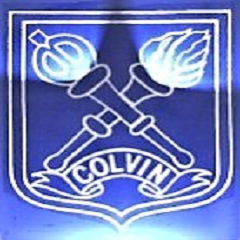
Gilbert Colvin Primary School
Early Years Foundation Stage
Intent
At Gilbert Colvin Primary School, we recognise the crucial role that early years education has to play in providing firm foundations upon which the rest of a child's education is successfully based. Therefore, we will provide an ambitious curriculum which is rich in wonder and generates memorable experiences. We strive to ensure that our curriculum enables children to develop their curiosity and problem-solving skills as well as providing a firm foundation in reading, phonics and mathematical skills.
We will teach our pupils the skills to speak with confidence and fluency in a variety of situations. We will extend and enrich children's vocabulary and instil a love for reading through quality first teaching and quality adult engagement.
Our intention is to provide a stimulating outdoor learning environment, that matches the indoor learning environment, and provides exciting opportunities, promotes challenge, exploration and adventure.
We will endeavour to provide opportunities through curriculum enrichment to provide outdoors, hands-on learning both within our immediate school environment as well as the wider community.
It is also our intent that all children in the EYFS develop physically, verbally, cognitively and emotionally, in an environment which values all cultures, communities and people. We aim for our children to be confident, independent and develop a sense of pride in themselves and have respect for and interact positively with others.
We recognise that play is an integral part of learning and this is at the heart of our early years curriculum. We believe that the correct mix of adult directed and uninterrupted child-initiated play ensures the best outcomes for pupils.
We are committed to promoting positive relationships between staff and children, and strong relationships with parents whose partnership we value.
Implementation
The early years foundation stage curriculum includes the statutory areas of learning as well as the educational programmes. We also plan for other experiences and opportunities which best meet the developmental needs of the children in our school.
We encourgae our children to become early readers through enjoyment of books and the systematic teaching of phonics. The children learn fairy tales, nursery rhymes and develop their mathematical thinking through direct teaching and exploration. We want our children to become confident mathematicians who can apply what they have learnt to real-life experiences.
We have prioritised creating a 'language rich' environment through the use of songs, nursery rhymes and stories, and by providing time for quality interactions between pupils and adults and pupils and their peers. Trained staff ensure that interactions are positive and progressive, allowing children to flourish and gather words at pace in order to become confident communicators.
All areas of the EYFS curriculum are followed and planned for, ensuring there is a broad, balanced and progressive learning environment and curriculum. The children will learn new skills, acquire new knowledge and demonstrate understanding through the seven areas in the EYFS curriculum.
The Curriculum
WE have a curriculum based upon topics which are enhanced by quality key texts. We encourage active learning to ensure the children are always motivated and interested. Our curriculum is designed to incorporate real-life memorable experiences outside the classroom, with trips and exciting visitors. The quality key texts are chosen carefully to encourage children's speech, language and communication development. All planning, however, is flexible and responsive to children's needs so plans can be changed and adapted according to the children's interests.
Learning Environment
Our outdoor learning environment enables our children to strengthen their core muscles through physical play. Children spend time outdoors in their natural environment in all weathers. They develop their skills and knowledge through exploratory, sensory experiences in our mud kitchen, water and sand areas, music areas, and wild outdoor area on the school site. We have planned our learning environments to be adaptable in order to reflect children's interests and progression. The children are supported by adults in their social development so that they learn to work together, manage their feelings and ask questions: this is done through adult facilitated play.
Partnerships
We understand the importance of parental engagement and believe that our parents have a crucial role to play in their children's education. We work hard to create strong partnerships between home and school. Parents enjoy their consultations with their child's teacher and take the opportunity to share their own experiences of their child's learning in the home. Nursery and Reception use a secure online learning journal called Tapestry to document and record the children's learning and development. Parents can use Tapestry to view their child's progress, communicate with staff and upload their own comments and observations.
Impact
By the end of the early years, our pupils will:
- Develop a sense of self-awareness and become confident in their own abilities.
- Be kind, respectful and honest; demonstrate inclusive attitudes and have a sense of their role in wider society.
- Demostrate self-regulation, emotional resilience and the ability to persevere when they encounter challenge whilst managing risks.
- Be confident and eloquent orators who have strong communication skills.
- Be able to talk fluently as well as listen to the views of others.
- Make rapid progress towards the national expectation for a good level of development before transitioning into Year 1.
- Demonstrate their ability to apply their knowledge to a range of situations, making links and explaining their ideas.
- Be confident to take risks and discuss their successes and failures with peers and adults, drawing on their experiences to improve or adjust what they are doing.
RWI Phonics
Mr Saal and Ms Fasham did a presentation to Nursery parents introducing them to the Phonics programme Read Write Inc which the children are starting to learn. The session was recorded and the video is below. You can see a copy of the sideshow by clicking here.